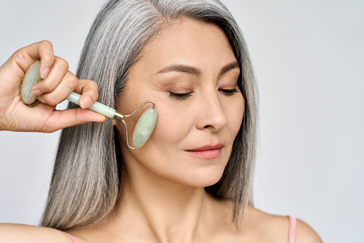Can Ashwagandha Result in Better Sleep?
Posted by Mike Miryala on

One of the greatest needs of every human is quality sleep. After juggling a lot of tasks during the day, it would be a big problem if you can’t catch a decent sleep at night. Most times, you may end up having emotional problems as well as poor mental health.
In fact, a study showed that lack of sleep has a link with increased anger, and we all have had an ugly interaction with someone sleepy. But the good part is that there have been countless options of supplements that have been recommended to improve sleep quality. However, the question is, “Can Ashwagandha result in better sleep?
What is Ashwagandha?
Ashwagandha is a medicinal herb from the roots of Withania somnifera, and it belongs to the nightshade family. This herb has been used to treat a lot of health ailments from Ayurveda to India, and then to African traditional medicine.
Ashwagandha is among the “top 40” beneficial herbs in the marketplace. Traditional practices are known to use the berries and roots of ashwagandha to treat several health conditions, and recent studies are beginning to dig deeper to find more evidence to support these benefits.
Basically, Ashwagandha is an adaptogen, and it has long been prized for its stress-reducing abilities. It has also been used traditionally to treat diabetes skin diseases, rheumatoid arthritis, gastrointestinal diseases, and epilepsy. It has also been shown to fight fatigue and boost energy levels.
But the question remains, “does ashwagandha help to improve sleep quality?” Let’s dig into the answer.
Can Ashwagandha result in better sleep?
Traditionally, ashwagandha has been used to improve sleep quality. This adaptogenic plant helps boost sleep quality either by influencing sleep directly or lowering stress, which helps to improve sleep.
However, more research is still ongoing to confirm preliminary findings.
One study showed that people who consumed ashwagandha root twice daily experienced greater improvement in many sleep markers compared to the placebo group. These researchers considered sleep logs submitted by the participant and a sensor that tracks rest and activity to measure total sleep time, activity and rest, and more.
Although both groups experienced an improvement in sleep efficiency and sleep onset latency (time taken to become fully awake), the group that took 600 mg of ashwagandha supplement daily enjoyed more benefits.
More so, the ashwagandha group experienced significant improvement in sleep quality, mental alertness, and anxiety upon waking.
Another study focused on an active compound known as triethylene glycol, which is found on the leaves of the ashwagandha plant. The whole plant or root has been used in India for centuries to counter insomnia.
But parts of the plant high in the active compound called “withanolides” do not help improve sleep. The leaves contain a low amount of this compound but contain more triethylene glycol. The use of the leaves extract has been found to be associated with significant improvement in rapid eye movement (REM) sleep and non-rapid eye movement sleep cycle.
However, this study is animal-based and more studies are still ongoing to determine if these active compounds in ashwagandha can produce sleep-inducing effects in humans without any side effects.
That said, ashwagandha is better studied to help relieve stress and improve wellbeing.
One study conducted on employees who had experienced moderate to severe anxiety for at least six weeks showed that the use of high-dose ashwagandha caused a significant improvement in mental health, energy levels, concentration, vitality, social functioning, and overall quality of life.
Another study reveals that participants who took a high dose of ashwagandha root extract experienced a better quality of life and diminished stress levels compared to the placebo group.
A study was conducted on 60 participants to determine the efficacy and safety of ashwagandha root extracts on anxiety and insomnia. The result showed a significant improvement in sleep quality with the test compared to the placebo group. More so, the herbal treatment was well tolerated by all participants with no form of adverse effect recorded throughout the 10-week study.
Since stress is a major factor associated with shorter sleep duration, improving stress conditions is a good way to improve the quality of sleep by increasing total sleep time.
Ashwagandha is very much effective when used with other measures, especially when stress is a contributing factor to poor sleep.
You should always try to stick to a regular bedtime routine, for example, go to bed at a fixed time every day. Also, get plenty of exercise during the day and avoid caffeine. Sleep in a dark room that is noise-free- you may consider getting a “white noise” device if your bedroom is noisy.
You can also try relaxation techniques like meditation, breathing exercises, and yoga if you’re having trouble falling asleep.
What are the other potential benefits of ashwagandha?
Ashwagandha root is widely used in Ayurvedic medicine and it is considered a drug of “Rasayana,” which is a Sanskrit word meaning “path of the essence” and the science of lengthening lifespan.
Many studies on ashwagandha focus on its use in traditional studies, but there are more recent studies that focus on its benefits as an adaptogen.
Current studies have shown that ashwagandha supplements such as extracts and powders, may:
- Reduce cortisol levels
- Boost testosterone levels
- Decrease inflammation
- Boost male fertility by increasing sperm count
- Lower cholesterol level
- Reduce anxiety and depression
- Increase muscle mass and muscle strength
The potential benefits of this ashwagandha herb come mainly from the active compounds, including glycowithanolides (which offer antioxidant benefits), withanolides (most common is withaferin A), and alkaloids.
Based on their functions, withanolides get the most attention, because they have anxiolytic properties, which help to ameliorate the effects of chronic stress.
One advantage of ashwagandha is that it is well-tolerated by most and it’s widely available.
Does Ashwagandha have any side effects?
Research has been able to show that ashwagandha does not produce any significant side effects. However, one study shows that participants who took ashwagandha experienced increased libido and vertigo, but none of the participants reported any adverse effects.
That said, you should always seek your doctor’s advice before trying any supplement.
Note:
- All pregnant and breastfeeding women should avoid taking ashwagandha.
- People who suffer from autoimmune diseases, such as rheumatoid arthritis, Hashimoto’s thyroiditis, or systemic lupus erythematosus should consult with a doctor before taking the supplement
- People who are on medication for blood pressure or thyroid function should first talk to a doctor before taking ashwagandha
- People who follow diets that eliminate plants such as peppers, tomatoes, and eggplants should completely avoid taking ashwagandha supplements
Although you can easily find products like ashwagandha capsules, extract, and powder at health stores and online, you should always ensure that you buy ashwagandha products from trusted companies.
Final Remark
A lot of people today are not getting enough sleep, and this affects productivity, emotional health, and even physical wellbeing. However, ashwagandha supplements are one of the best solutions that offer a simple, safe, and natural effect in supporting deep sleep, without any form of drowsiness or negative effect.
So the good news is that you do not have to resort to the use of potentially harmful and addictive medications to help you enjoy a sound sleep. You can combat stress, reduce anxiety, and improve the quality of your sleep naturally using ashwagandha supplements. You can get them both online and in health stores.
However, some conditions do not support the use of ashwagandha, hence, you should always speak with your doctor before trying any supplement.

Mike Miryala, Head Pharmacist at CoBionic
Here are health supplements you might be interested in:
Lull-a-Bear Sleep Gummies
- 100% Vegan Gummies to help you sleep faster and longer
- Eases anxiety and stress - - relaxing the central nervous system
- Improves brain function by enhancing focus and mood
Vibrance Daily Greens
- Organic Superfood Mix of 50+ Fruits, Vegetables, Probiotics, Prebiotic Fiber, Herbs and Antioxidants
- Unique Probiotics, Enzymes, & Prebiotics for Increased Absorption and Better Gut Health
- Delicious Flavor & Super-Easy To Mix
- 100% Organic, Vegan, Non-GMO, Gluten Free, Dairy Free, and Kosher







